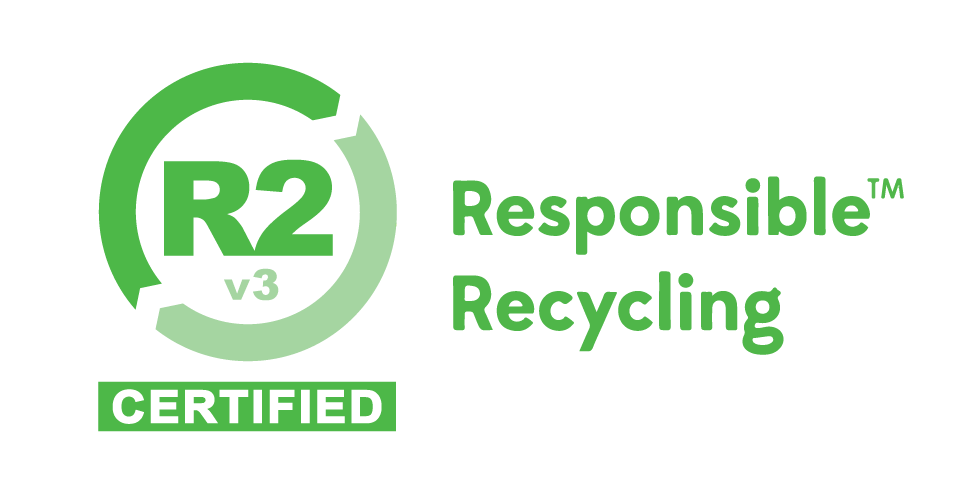Oil and Gas Industry Electronics Recycling
And Industry Leading Data Destruction
An integral economic sector, a rapid IT asset turnover rate becomes the natural consequence of our modern petroleum industry's increasing reliance on cutting edge computer and IT innovation. Combined with an emphasis on building a culture of compliant environmental strategies, these conditions create a high demand for competent e-waste disposal and data sanitation.
Oil and Gas Electronics Liquidation
Our Expertise
We are experts at secure oil and gas industry related e-waste and electronics recycling and disposal.
You need a company who understands the requirements of the job. You need STS Electronic Recycling, Inc.
Data Protection
STS provides its clients unbeatable and compliant data protection. Our Mobile Shredding Trucks bring the convenience of total physical destruction to your doorstep.
Asset Liquidation
STS can offer you fair market value on your IT Assets that have not lost the majority of their value due to their age or condition.
On-Site Pick-up
Our most popular service is our complimentary on-site pick-up. Our trucks are always in the area, and our trained technicians handle all the heavy lifting.
Audited Downstream
STS has built a network of certified downstream partners and recyclers who we regularly audit to ensure no electronics ever wind up in a landfill.
Live Tracking
Our fleet of secured box trucks are monitored by GPS tracking devices at all times, providing a provable and transparent chain of custody.
On-time reporting
STS will provide your team with prompt and complete reporting on the items we process from your business.
What is Electronics Recycling?
Electronics recycling, also known as e-waste recycling, is the process of recovering valuable materials from discarded electronic devices. The goal of electronics recycling is to reduce the environmental impact of electronic waste by reusing or repurposing old devices and extracting valuable materials for new products.
One of the main drivers of electronics recycling is the rapid pace of technological innovation, which leads to a constant stream of new devices and a corresponding increase in the amount of electronic waste. In the United States alone, it is estimated that over 9 million tons of e-waste is generated each year.
The first step in electronics recycling is the collection of discarded devices. This can be done through a variety of channels, including curbside pickup, drop-off centers, and buyback programs. Once collected, the electronic devices are transported to a recycling facility where they are sorted and processed.
The sorting process typically involves separating devices by type, such as computers, televisions, and mobile phones. This allows for the most efficient and effective recycling of materials. For example, computers contain valuable metals such as gold, silver, and copper, which can be recovered and used in new products. Televisions, on the other hand, contain large amounts of glass, which can be crushed and used as a construction aggregate.
After sorting, devices are typically disassembled to remove any hazardous materials, such as batteries and mercury-containing components. These materials are then properly disposed of to minimize their environmental impact. The remaining materials are then processed to recover valuable metals, plastics, and other materials that can be used in new products.
One of the most promising areas of electronics recycling is the recovery of rare earth metals. These metals, which include elements such as neodymium and dysprosium, are used in a variety of electronic devices, including smartphones, wind turbines, and electric vehicles. The demand for these metals is expected to continue to grow, making their recovery from e-waste an increasingly important area of research.
The benefits of electronics recycling are numerous. It reduces the amount of e-waste in landfills, where it can release toxic chemicals and pollutants into the environment. It also reduces the need to extract new raw materials, which can have a significant environmental impact. In addition, it creates jobs and supports local economies.
However, there are still some challenges to overcome in the field of electronics recycling. One of the biggest challenges is the lack of a standardized recycling process. Different states and countries have different regulations and standards, making it difficult for recyclers to effectively process and recycle electronic waste.
Another challenge is the lack of awareness among consumers about the importance of electronics recycling and how to properly dispose of their old devices. Many people are still not aware of the environmental impacts of e-waste or the options available for recycling.
Overall, electronics recycling is an important and growing field that offers many benefits to the environment, economy and society. With the increasing amount of electronic waste generated each year, it is crucial that we continue to invest in and improve the recycling process.
Why is Electronics Recycling Important for the Oil and Gas Industry?
Electronics recycling is important for the oil and gas industry for several reasons:
-
Resource Conservation: The oil and gas industry relies heavily on electronic equipment and devices, such as drilling rigs, pipelines, and oil platforms. By recycling these devices, the industry can recover valuable materials such as metals and plastics, which can be used to manufacture new equipment, thus reducing the need to extract new raw materials.
-
Cost Savings: Recycling electronic waste can provide significant cost savings for the oil and gas industry. By recovering valuable materials from discarded equipment, companies can reduce their material costs and improve their bottom line.
-
Compliance with Regulations: The oil and gas industry is subject to strict environmental regulations, and proper disposal of electronic waste is an important aspect of compliance. Recycling electronic waste ensures that hazardous materials such as batteries and mercury-containing components are properly disposed of and do not harm the environment.
-
Reputation management: With the increasing awareness of the environmental impacts of e-waste, recycling electronic waste can help the oil and gas industry to improve its reputation and demonstrate its commitment to sustainability.
-
E-waste is a growing concern worldwide and it is crucial for the oil and gas industry to take responsibility and actively participate in the recycling process to decrease the environmental impact.
In conclusion, electronics recycling is essential for the oil and gas industry in terms of cost savings, compliance, resource conservation, and reputation management. By recycling electronic waste, the industry can reduce its environmental impact and support the circular economy.
WHY CHOOSE STS?
STS protects your business from the potential liability and expense associated with e-waste disposal and recycling, all while promoting good corporate citizenship.
STS Electronic Recycling, Inc. is leading the way to a green, safe future. We allow businesses and organizations a way to safely recycle unwanted, non-working and out-of-date computer equipment while giving back to their global and local communities.
Your equipment is safe with us
Your company can rest easy, knowing that STS is protecting your business, agency or organization from the potential liability associated with e-waste disposal and data destruction. STS provides a transparent and trackable solution with in-depth reporting and can tell you the final destination, or End of Life, of every item or asset we recycle, include Certificates of Destruction for all data bearing devices.
You don’t have to lift a finger
You call us, we take care of the rest. We are a full-service electronics recycler with solutions for every customer. We come to you, we do all the heavy lifting. From computers, laptops and mobile devices, to servers, networking equipment, peripherals and telecom equipment, we have got you covered.
AuditLive™
You get value for your valuable equipment
We are always looking to improve our customers bottom line in the form of a fair market value quote on equipment that is still in good working condition. Our computer liquidation and ITAD service is unmatched. STS can audit your equipment item by item and pay you based on the result of that audit.







